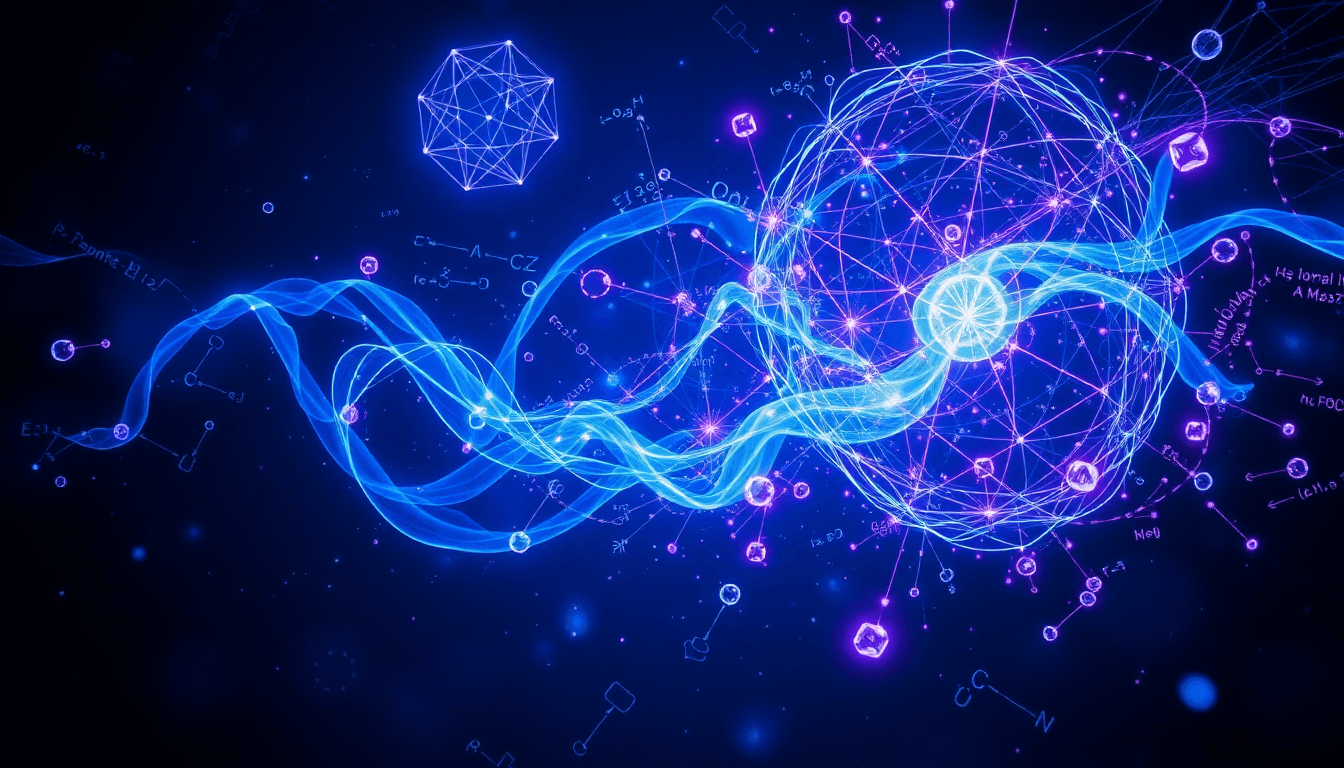In the ever-evolving landscape of scientific discovery, one field stands out as a gateway to understanding the very essence of life itself: biochemistry. This captivating discipline delves into the intricate dance of molecules, revealing the fundamental processes that sustain and shape the living world around us.
Introduction to Biochemistry
Biochemistry, a dynamic intersection of chemistry and biology, is the study of the chemical substances and vital processes that occur within living organisms. From the complex structures of proteins to the intricate pathways of cellular respiration, biochemistry provides the framework for comprehending the building blocks of life.
At its core, biochemistry explores the chemical reactions and interactions that underpin the functioning of living systems. By unraveling the mysteries of macromolecules, enzymes, and metabolic processes, this field offers a profound understanding of the mechanisms that drive the remarkable diversity of life on our planet.
Fundamental Concepts in Biochemistry
To fully grasp the breadth and depth of biochemistry, it is essential to delve into its foundational principles. These include the study of the four major classes of macromolecules: proteins, nucleic acids, carbohydrates, and lipids. Each of these plays a crucial role in the intricate tapestry of life, from the structural integrity of cells to the storage and transmission of genetic information.
Protein Structure and Function
Proteins, the workhorses of the living world, are perhaps the most versatile and fascinating of the macromolecules. These complex chains of amino acids fold into intricate three-dimensional structures, each with a unique function. From enzymes that catalyze chemical reactions to receptors that transmit signals, proteins are the driving force behind countless biological processes.
Understanding the principles of protein structure, including the role of primary, secondary, tertiary, and quaternary structures, is essential for unraveling the mechanisms of protein function. This knowledge paves the way for insights into enzyme mechanics, protein folding, and the dynamic interplay between structure and function.
Enzyme Mechanics
Enzymes, a specialized class of proteins, are the catalysts that accelerate the rate of chemical reactions within living organisms. By lowering the activation energy required for a reaction to occur, enzymes enable the efficient and precise control of metabolic pathways, ensuring the smooth flow of life-sustaining processes.
Delving into the mechanics of enzymes, including their kinetics, specificity, and regulation, provides a deeper understanding of the intricate choreography of biochemical reactions. This knowledge is crucial for exploring the role of enzymes in cellular respiration, metabolic pathways, and the overall maintenance of homeostasis.
Key Biochemical Processes
Biochemistry encompasses a vast array of essential processes that sustain life, from the generation of energy to the synthesis of complex biomolecules. By exploring these fundamental mechanisms, we can gain a profound appreciation for the delicate balance and interconnectedness of living systems.
Cellular Respiration
At the heart of energy production in living organisms lies the process of cellular respiration. This intricate series of chemical reactions, fueled by the breakdown of glucose and other organic molecules, generates the universal energy currency of life: adenosine triphosphate (ATP).
Understanding the stages of cellular respiration, including glycolysis, the citric acid cycle, and the electron transport chain, sheds light on the efficient conversion of chemical energy into a form that can be readily utilized by cells. This knowledge is crucial for comprehending the energetic foundations of life, from the microscopic scale of individual cells to the macroscopic functioning of complex organisms.
Metabolic Pathways
Biochemistry also delves into the intricate web of metabolic pathways, which govern the synthesis, transformation, and degradation of a vast array of biomolecules. These interconnected networks of chemical reactions are responsible for the production of essential compounds, the regulation of physiological processes, and the maintenance of homeostasis.
Exploring the diverse metabolic pathways, such as those involved in the synthesis of proteins, nucleic acids, and lipids, provides invaluable insights into the dynamic nature of living systems. By understanding the mechanisms that underlie these pathways, researchers can uncover new avenues for therapeutic interventions, nutritional optimization, and environmental sustainability.
ATP Energy Production
At the core of biochemical processes lies the production and utilization of adenosine triphosphate (ATP), the universal energy currency of life. This high-energy molecule serves as the primary source of energy for a multitude of cellular functions, from muscle contraction to neural signaling.
Delving into the mechanisms of ATP synthesis, including the role of the electron transport chain and the ATP synthase complex, sheds light on the efficient conversion of chemical energy into a form that can be readily accessed by living organisms. This knowledge is essential for understanding the energetic foundations of life and the intricate interplay between biochemical pathways.
Molecular Interactions in Biochemistry
Biochemistry is not merely a collection of isolated facts and processes; it is a tapestry of intricate molecular interactions that give rise to the remarkable complexity of living systems. By exploring the behavior and interactions of the fundamental building blocks of life, we can uncover the underlying principles that govern the emergence of biological phenomena.
Amino Acids and Nucleotides
At the heart of biochemistry lie the fundamental units of life: amino acids and nucleotides. These small, yet essential, molecules serve as the building blocks for the macromolecules that are the foundation of all living organisms.
Understanding the chemical properties and diverse functions of amino acids and nucleotides provides a crucial foundation for exploring the structures and interactions of proteins, nucleic acids, and other biomolecules. This knowledge is essential for deciphering the mechanisms of protein folding, genetic information storage and transfer, and the intricate dance of molecular interactions that sustain life.
Protein Folding Mechanisms
The intricate process of protein folding, in which a linear chain of amino acids transforms into a complex three-dimensional structure, is a central focus of biochemistry. This remarkable phenomenon is governed by a delicate balance of forces, including hydrogen bonding, hydrophobic interactions, and electrostatic attractions.
Unraveling the mechanisms of protein folding is crucial for understanding the relationship between structure and function, as well as the role of misfolded proteins in various disease states. By delving into the principles of protein folding, researchers can gain insights into the design of therapeutic interventions, the development of novel biomaterials, and the engineering of proteins with desired properties.
Biochemistry vs. Traditional Chemistry
While biochemistry shares many fundamental principles with traditional chemistry, it also possesses unique characteristics that set it apart as a distinct and vital field of study. Understanding the key differences between these two disciplines provides a deeper appreciation for the specialized knowledge and approaches that biochemistry brings to the table.
Unique Characteristics of Biochemistry
Biochemistry is distinguished by its focus on the chemical processes that occur within living organisms, rather than the study of inorganic or synthetic compounds. This emphasis on the chemistry of life, with all its inherent complexity and dynamism, sets biochemistry apart from the more general realm of traditional chemistry.
Moreover, biochemistry is inherently interdisciplinary, drawing upon the insights and methodologies of fields such as biology, physics, and computational science. This cross-pollination of disciplines allows biochemists to tackle the multifaceted challenges of understanding the intricate workings of living systems.
Interdisciplinary Nature of Biochemistry
The interdisciplinary nature of biochemistry is a key strength, as it enables researchers to approach problems from a diverse array of perspectives. By integrating knowledge and techniques from various scientific disciplines, biochemists can uncover novel solutions and push the boundaries of our understanding of life.
This interdisciplinary approach is particularly evident in the development of cutting-edge analytical tools, such as advanced spectroscopy, mass spectrometry, and bioinformatics. These technologies, which are essential for probing the complexities of biochemical systems, are the result of collaborative efforts across multiple fields of study.
Biochemistry in the Laboratory
The study of biochemistry is not merely a theoretical pursuit; it is also a hands-on endeavor that involves a wide range of experimental techniques and analytical approaches. From the careful design of experiments to the meticulous interpretation of data, the biochemistry laboratory is a hub of scientific discovery and innovation.
Research Methods in Biochemistry
Biochemists employ a diverse array of research methods to investigate the intricate workings of living systems. These include techniques such as protein purification, enzyme kinetics assays, spectroscopic analysis, and genetic engineering. By mastering these experimental approaches, researchers can uncover the underlying mechanisms that govern biochemical processes.
Moreover, the advent of modern technologies, such as high-throughput screening, advanced imaging techniques, and computational modeling, has revolutionized the field of biochemistry. These cutting-edge tools enable researchers to explore the biochemical world with unprecedented precision and efficiency, paving the way for groundbreaking discoveries.
Analytical Approaches in Biochemistry
Biochemistry also relies on a suite of analytical techniques to characterize the structure, function, and interactions of biomolecules. From chromatography and electrophoresis to mass spectrometry and nuclear magnetic resonance (NMR) spectroscopy, these analytical methods provide invaluable insights into the complex world of biochemistry.
By mastering these analytical approaches, biochemists can unravel the intricate details of molecular structures, identify the presence and abundance of specific biomolecules, and elucidate the dynamic interactions that underpin the functioning of living systems. This knowledge is essential for advancing our understanding of biochemical processes and driving the development of innovative applications in fields such as medicine, biotechnology, and environmental science.
Career Opportunities in Biochemistry
The field of biochemistry offers a diverse array of career paths, catering to a wide range of interests and aspirations. From cutting-edge research in academic and industrial settings to the development of life-saving therapies, the opportunities in biochemistry are both varied and rewarding.
Research Fields in Biochemistry
Biochemists can pursue careers in a variety of research fields, including academia, government laboratories, and the pharmaceutical and biotechnology industries. These roles may involve investigating the mechanisms of disease, developing new therapeutic strategies, or exploring the fundamental principles of life.
Researchers in biochemistry may focus on areas such as protein engineering, metabolic engineering, structural biology, systems biology, or computational biochemistry. The breadth of research topics within biochemistry allows individuals to align their passions and expertise with the pursuit of scientific discovery.
Industrial Applications of Biochemistry
Beyond the realm of academic research, biochemistry also offers exciting career paths in the industrial sector. Biochemists may contribute to the development of new drugs, the production of biofuels, the design of sustainable materials, or the optimization of agricultural processes.
In the pharmaceutical and biotechnology industries, biochemists play a crucial role in drug discovery, drug development, and the production of biologics, such as therapeutic proteins and vaccines. Their expertise in understanding the underlying biochemical mechanisms is essential for the successful translation of scientific knowledge into real-world applications.
Academic and Professional Paths
Biochemistry also provides opportunities for individuals interested in teaching, mentoring, and shaping the next generation of scientists. Biochemists may pursue careers in academia, where they can engage in cutting-edge research, share their knowledge through teaching, and contribute to the advancement of the field through publications and collaborations.
Additionally, biochemists may choose to pursue careers in science communication, policy, or regulatory affairs, where their deep understanding of biochemical principles can inform decision-making, shape public discourse, and ensure the responsible development and application of scientific knowledge.
The Future of Biochemistry
As the field of biochemistry continues to evolve, the future holds immense promise and potential. With the rapid advancements in technology, the emergence of interdisciplinary collaborations, and the growing recognition of the importance of biochemistry in addressing global challenges, the field is poised to make transformative contributions to our understanding of life and the world around us.
Emerging Technologies in Biochemistry
The rapid pace of technological innovation is revolutionizing the field of biochemistry. From the development of high-resolution imaging techniques to the integration of artificial intelligence and machine learning, these advancements are enabling biochemists to explore the biochemical world with unprecedented precision and efficiency.
The advent of cutting-edge tools, such as cryo-electron microscopy, single-cell sequencing, and advanced computational modeling, is opening new frontiers in the study of biomolecular structures, cellular processes, and complex biochemical networks. These technological breakthroughs are paving the way for groundbreaking discoveries and the development of innovative applications in fields ranging from medicine to sustainable energy.
Potential Scientific Breakthroughs
As biochemistry continues to push the boundaries of scientific knowledge, the potential for transformative breakthroughs is immense. From unraveling the mysteries of the human genome and the intricacies of the human microbiome to developing personalized therapies and sustainable biofuels, the future of biochemistry holds the promise of addressing some of the most pressing challenges facing humanity.
Ongoing research in areas such as protein engineering, metabolic engineering, and synthetic biology holds the potential to revolutionize fields as diverse as medicine, agriculture, and environmental sustainability. By harnessing the power of biochemistry, scientists and innovators can work towards a future where the fundamental principles of life are leveraged to improve the human condition and safeguard the health of our planet.
Conclusion
Biochemistry, the captivating intersection of chemistry and biology, offers a profound and multifaceted understanding of the living world. From the intricate structures of proteins to the dynamic interplay of metabolic pathways, this field of study provides the key to unlocking the secrets of life itself.
By delving into the fundamental concepts, exploring the mechanisms of biochemical processes, and understanding the interdisciplinary nature of this discipline, we can gain a deeper appreciation for the remarkable complexity and interconnectedness of living systems. As we continue to push the boundaries of scientific knowledge, the future of biochemistry holds the promise of groundbreaking discoveries and transformative applications that will shape the world we live in.
Whether you are a curious student, an aspiring researcher, or an individual seeking to understand the intricacies of life, the journey through the realm of biochemistry is one that promises to be both intellectually stimulating and profoundly rewarding. Embark on this adventure, and unlock the secrets that lie at the heart of the living world.
















